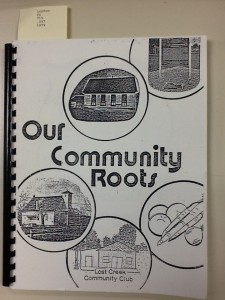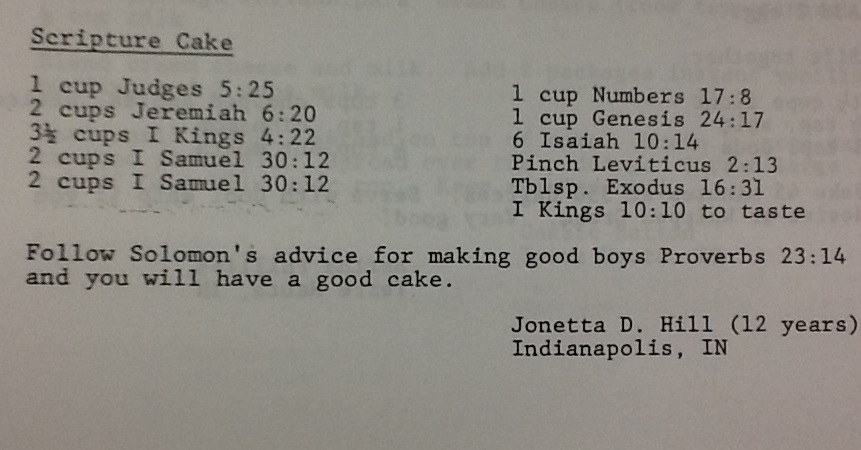By: Emily Tarvin, MA student in American Studies
Our pedagogy series is a way to highlight innovative teaching using primary sources housed in the Division of Special Collections. Read Dr. Morgan’s introduction to his series if you haven’t already. Emily Tarvin, who wrote today’s post, is the first student we’ll feature. Wednesday, we’ll hear from Samm Banks. On Thursday, Laci Thompson will share her contribution.
The cookbook Our Community Roots from the David Walker Lupton African American Cookbook Collection gives readers insight into the Lost Creek Community in Terre Haute, Indiana in 1979. The cookbook was created by four women who gathered recipes from various people scattered across the United States, and it is addressed “to all cooks” who aspire to learn how to make “more elegant and nutritious dishes.” The desire for elegance contrasts the simple and inexpensive appearance of the book, but there are black and white cartoons to help decorate the pages inside.
Since the recipes were submitted by several different people, there is no consistent format or structure throughout, but all of the ingredients and instructions are traditional and simplistic. The women making this cookbook worked to preserve the traditions of the community but also to pass on communal knowledge and attitudes.
There are idiosyncratic sayings, songs, and “recipes” placed sporadically, such as the saying, “Dropping a knife is a sign of male company; a fork, female; a teaspoon, the sign of disappointment.” A Scripture cake and a marriage cake were also included to help reinforce the religious and sexual views of the community at the time.
Almost all of the recipe contributors were women, which suggests that most of the people who read this cookbook were also women. However, there are a couple of recipes submitted by men. The makers of this book inserted a tip that says, “Note to men: If you must be a cook –learn to clean up as you go along.” This implies that they believed cooking and other kitchen-related tasks should stay women’s work. By having these tips and various sayings alongside traditional recipes, the Lost Creek Community was passing on values held by women to other women in the area. The cookbook also has the community’s history at the end; there are images of an old-fashioned town and the city map that begin this section. The creators give the history of the Lost Creek Community from slavery to 1979, and it also includes a list of all of the men that served in the military. This end section reveals communal pride, even though at first glance it seems out of place in a cookbook. However, all of these peculiar aspects, such as the marriage cake or the town map, are cohesive in their role to preserve the traditions and heritage of the Lost Creek Community. The cookbook Our Community Roots not only was a way for women in the community to learn recipes, but it was also a way for women to keep traditional practices and beliefs alive and bring women together through making food.


